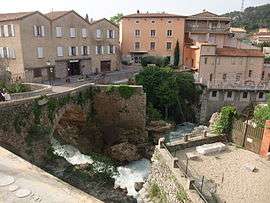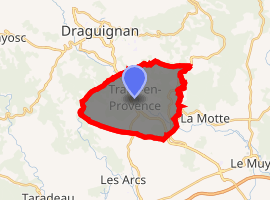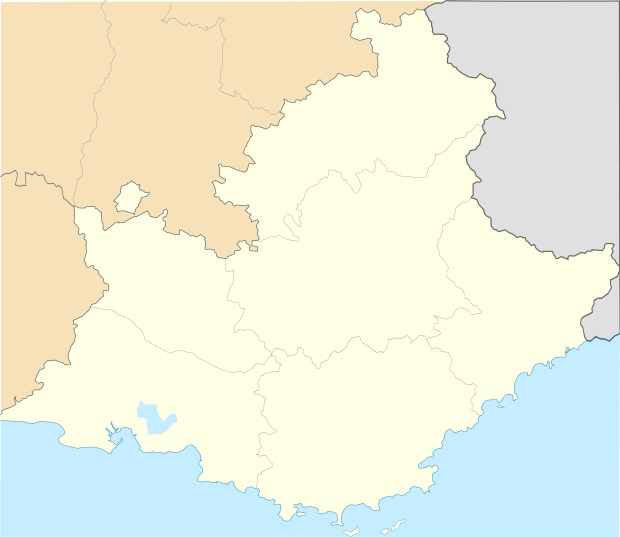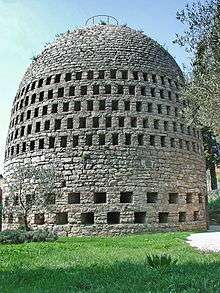Trans-en-Provence
Trans-en-Provence (Provençal: Tranç) is a commune in the Var department in the Provence-Alpes-Côte d'Azur region in southeastern France.
Trans-en-Provence | |
|---|---|
 The river, bridge and buildings in Trans-en-Provence | |
Coat of arms | |
Location of Trans-en-Provence 
| |
 Trans-en-Provence  Trans-en-Provence | |
| Coordinates: 43°30′15″N 6°29′12″E | |
| Country | France |
| Region | Provence-Alpes-Côte d'Azur |
| Department | Var |
| Arrondissement | Draguignan |
| Canton | Draguignan |
| Intercommunality | Draguignan |
| Government | |
| • Mayor | Jacques Lecointe |
| Area 1 | 16.99 km2 (6.56 sq mi) |
| Population (2017-01-01)[1] | 5,847 |
| • Density | 340/km2 (890/sq mi) |
| Time zone | UTC+01:00 (CET) |
| • Summer (DST) | UTC+02:00 (CEST) |
| INSEE/Postal code | 83141 /83720 |
| Elevation | 100–272 m (328–892 ft) (avg. 146 m or 479 ft) |
| 1 French Land Register data, which excludes lakes, ponds, glaciers > 1 km2 (0.386 sq mi or 247 acres) and river estuaries. | |
Trans-en-Provence is famous among the ufologists as the site of an alleged UFO incident called the "Trans-en-Provence Case".
History
The village which was originally located on the hill St Victor took the name Trans (Latin: "beyond") on moving across the river Nartuby. The name appears in 1004, in the proceedings of the cartulary of the Abbey of Saint Victor, Marseille. At the end of the twelfth century, the village came under the authority of the Count of Provence who gave it as a fief in 1200 to Giraud de Villeneuve. From that date until 1789, members of the Villeneuve family were the Lords of Trans. The seigneurial seat was transformed into a château-fort in the 14th century. From that time the village, decimated by the Black Death, expanded with the cultivation of olives. In 1506, Louis de Villeneuve, seigneur de Trans, received the title of marquis from Louis XII, in recompense for his actions in the Italian Wars.
Air well

References
- "Populations légales 2017". INSEE. Retrieved 6 January 2020.
| Wikimedia Commons has media related to Trans-en-Provence. |